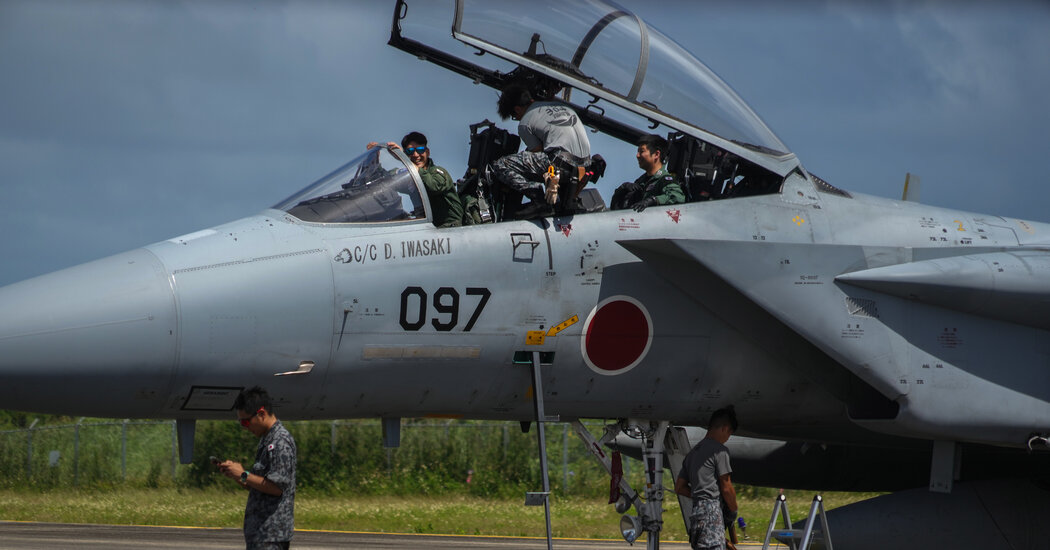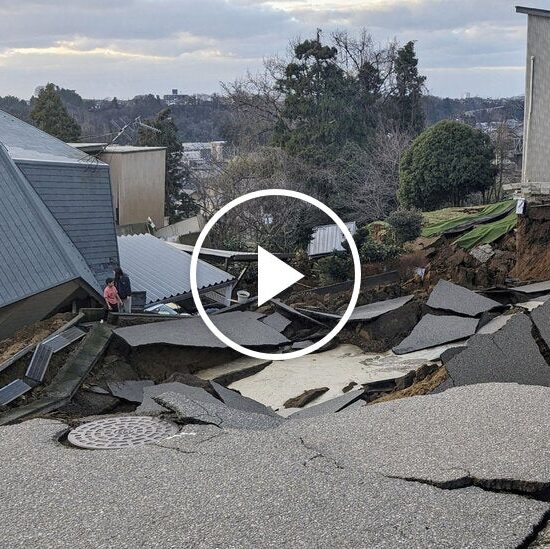
China is the “greatest strategic challenge.” Russia’s invasion of Ukraine is a “serious violation of international law.” North Korea is an “imminent threat.” And Japan needs to “fundamentally” strengthen its military and work more closely with countries like South Korea to preserve regional stability.
The tough assessment comes from Japan’s annual defense white paper, approved by the cabinet office Friday amid growing security concerns that have pushed Tokyo to rethink its decades-long commitment to pacifism.
The document, which borrows much of its language from the national security strategy released in December, is a reaffirmation of Tokyo’s commitment to playing a more active role in East Asian security. It highlights future military cooperation with South Korea as both countries face an increasingly uncertain security environment.
The continuing effort to improve that contentious relationship exemplifies how Japan has changed its national priorities and its defense policy since Russia’s invasion of Ukraine. Tokyo has pledged to double its military spending, harden local defenses and deepen coordination with countries in the Asia-Pacific and beyond.
The changes come amid growing concerns about the political alignment between Moscow and Beijing and about China’s designs on Taiwan, a crucial source of semiconductors for Japanese industry. Additionally, North Korea has drastically stepped up missile launches, raising fears of a strike, whether accidental or intentional.
Such anxieties have fundamentally shifted public opinion in Japan on issues related to national security and military affairs that had held fast since the end of World War II.
For starters, Japan has supplied nonlethal military equipment, such as body armor, to Ukraine. Japan has also begun discussions about exporting weapons for use in that country and obtaining a so-called counterstrike capability for itself that would use missiles to attack military installations. In recent months, Japan’s military — known as the Self-Defense Forces — has stepped up exercises at home and with friendly countries, including working with the United States to defend against a simulated invasion of islands near Taiwan.
At the same time, Friday’s white paper emphasizes that Japan will “prioritize active diplomacy” in its national security efforts.
Over the last year, Tokyo has taken steps to reduce its vulnerability to, and dependence on, China. Those have included cooperation with the United States on industrial policies intended to reduce reliance on raw materials and finished goods from its neighbor.
Most noticeable since last year’s white paper have been efforts by Tokyo to improve its contentious relationship with Seoul. Many in South Korea have criticized what they see as a failure by Japan to make amends for its colonial rule. For its part, Japan has viewed Seoul as an unreliable partner. Mending the relationship has been a longstanding ambition for policymakers in Washington, who see the countries as critical partners in its own Asia-Pacific strategy.
But Japan’s diplomatic reach has extended well beyond the Asia Pacific. Prime Minister Fumio Kishida has sought deeper involvement by the North Atlantic Treaty Organization in East Asia as he seeks to counter China’s regional influence.
In July, Mr. Kishida announced agreements to cooperate with NATO on cybersecurity and space policy that he said would elevate the relationship to “new heights.” A joint statement with NATO secretary general Jens Stoltenberg expressed concern about growing military cooperation between China and Russia, including joint exercises near Japan.
Hisako Ueno contributed reporting.













